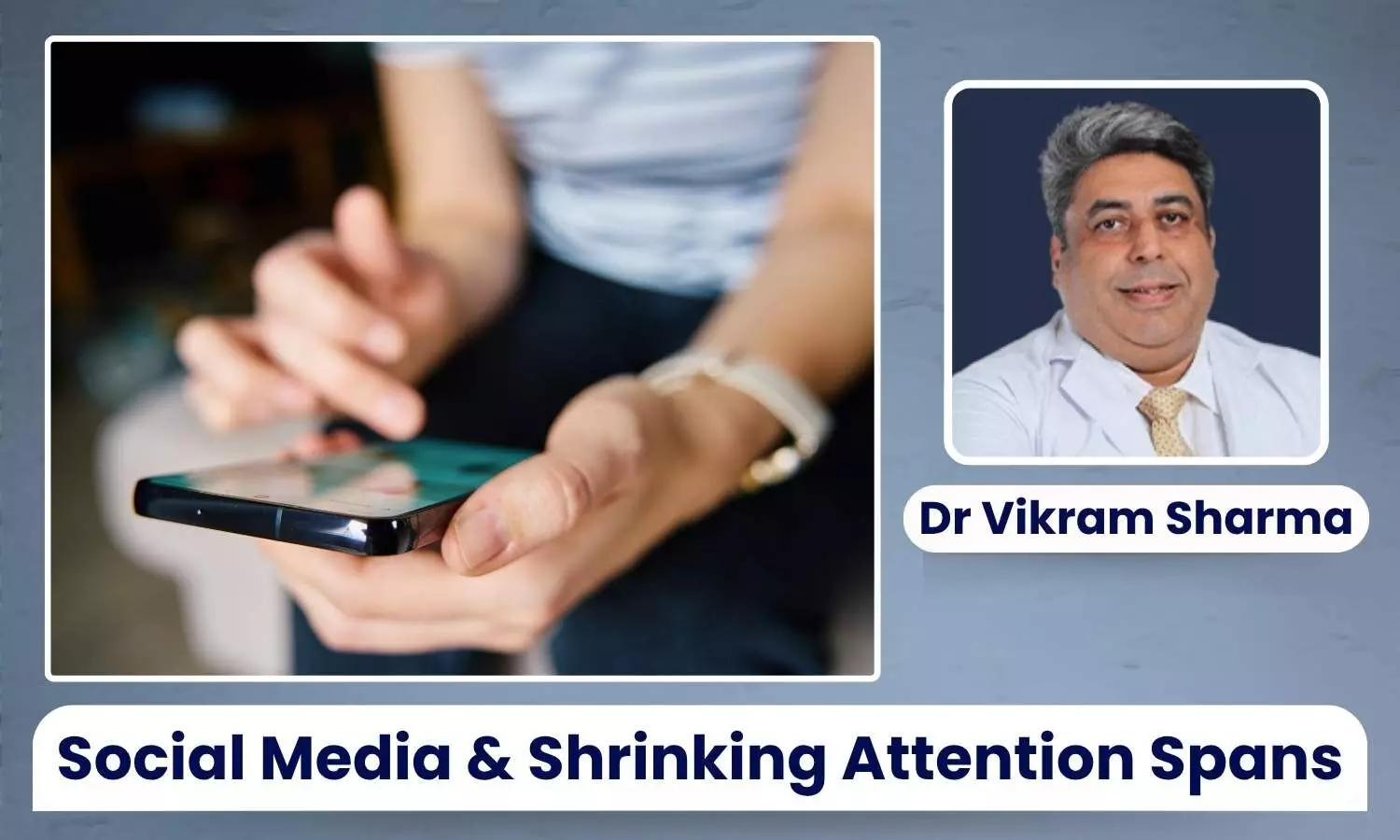Is Social Media Shrinking Your Attention Span? What Neurologists Are Seeing - Dr Vikram Sharma

There’s a certain rhythm we’ve all gotten used to, scroll, swipe, skip. Whether it’s a 15-second reel, a punchy infographic, or a carousel that ends before you’ve even absorbed it, short-form content now dominates the way we consume information. As a neurologist, I find this trend both fascinating and worrying.
What started as convenience has slowly begun to reshape how our brains engage with the world. And while we haven’t lost the ability to focus, it’s clear we’re training ourselves to tolerate less of it.
The Mind on Speed Mode
The brain, by nature, adapts. Repeated behaviours form patterns, and over time, those patterns influence how we think, feel, and process input. When our minds are constantly flipping through rapid bursts of content, they get used to it.
We’re essentially reinforcing a habit of shallow engagement, skimming rather than reflecting, jumping rather than sitting still with a thought.
For younger individuals, this becomes even more relevant. The adolescent and young adult brain is still developing key areas responsible for decision-making, attention regulation, and emotional balance. Constant stimulation in the form of fast-moving media doesn’t just entertain, it trains.
What Patients Are Telling Me
I often hear things like: "I can’t sit through a full lecture any more," or "My attention wanders even during a five-minute meeting." These aren’t isolated complaints.
Many young professionals, college students, and even school-aged children are reporting a similar fog, difficulty focusing, mental fatigue, and an oddly persistent feeling of restlessness, even during downtime.
When I dig a little deeper, what emerges is a daily routine full of interruptions. Multiple tabs open, social media apps firing notifications, and an unconscious urge to reach for the phone at the slightest hint of boredom.
From Reels to Real-Life Repercussions
Is short-form content the enemy? Not entirely. But its cumulative effect is something we can’t ignore. Over time, overexposure to short, dopamine-boosting snippets can dull our ability to focus on tasks that require deeper attention, like reading, problem-solving, or even having meaningful conversations.
There’s also a growing tendency toward digital fatigue. The brain, constantly toggling between inputs, starts to feel overwhelmed, not just by the quantity of content, but by the pace at which it’s consumed. This results in shorter memory retention, increased irritability, and an underlying cognitive “tiredness” that doesn’t always show up in blood tests, but is deeply felt.
Emotional Attention Is Also at Risk
Our attention span isn’t just about productivity, it plays a huge role in how we process emotions. When our emotional responses are also shaped by bite-sized content, there’s less room for nuance. We end up reacting rather than reflecting.
We scroll past someone’s grief or outrage in five seconds, followed by a cooking hack or a cat video. The brain isn’t built to jump between emotional extremes that fast.
So What Can You Actually Do?
The answer isn’t quitting digital content altogether. It’s about being intentional. Here’s what I recommend to patients:
Set tech-free zones: Meals, early mornings, and the last hour before bed are good starting points. Practice slow consumption: Read long-form articles, listen to full podcasts without multitasking, and build tolerance for uninterrupted attention.
Embrace silence: It’s underrated. Letting your mind wander without input is a simple but powerful reset.
Check your triggers: Do you reach for your phone out of habit or boredom? That awareness is the first step.
Don’t aim for perfection: It’s not about never using short-form content. It’s about not letting it become the default mode of thinking.
Why This Matters Now
We’re in a moment where attention has become a currency fought for, bought, and sold. But unlike other currencies, once you lose the ability to focus, you can’t buy it back easily. As a neurologist, I believe we owe it to ourselves, and especially to the next generation, to protect the ability to concentrate, reflect, and process deeply.
If you find yourself unable to finish a page without checking your phone, or switching tasks before one is done, it might be time to pause and rethink the way you’re using your attention.
Because in the long run, how we focus shapes how we live.


